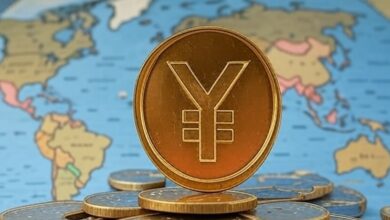South Korea’s Ruling Party Launches Crypto Task Force to Boost Blockchain Growth

The South Korean Democratic Party (DP) has announced the formation of a new crypto policy-making task force, aimed at fostering innovation and growth in the country’s crypto and blockchain sectors.
According to Electronic Times, the ruling party emphasized that the unit will “create policies that spur future growth” and keep pace with global financial innovation.
Task Force to Prioritize Stablecoin Legislation
Unveiled at a National Assembly press event on September 24, the task force revealed its plan to pass pro-business crypto legislation before the end of 2025.
Han Jeong-ae, Chair of the DP’s policy committee, stated:
“We need to establish a system that keeps pace with evolving trends in the new financial market. We are looking forward to stable and sustainable institutional innovation.”
The task force will initially focus on stablecoin regulation, including token issuance and distribution frameworks. Unlike current crypto laws, which mainly emphasize operator oversight and user protection, the new policies are expected to streamline the system and promote industry growth.
Engagement with Regulators and Industry Leaders
Led by lawmaker Lee Jeong-moon, the group includes Min Byoung-dug, chairman of the party’s Digital Asset Committee and a well-known advocate for stablecoin-driven financial innovation.
The task force has already reached out to key regulators — including the Financial Services Commission (FSC), the Financial Supervisory Service (FSS), and the Bank of Korea — for policy input.
Plans also include consultations with crypto exchanges, fintech firms, and private sector experts, with the creation of an advisory board to ensure industry perspectives are incorporated.
Lee emphasized:
“We will treat the digital asset market as a new paradigm for the financial markets. Our goal is to develop policies that will foster future growth.”
Supportive Moves to Revitalize South Korea’s Crypto Sector
Han welcomed the government’s recent decision to lift the ban on venture capital funding for crypto companies, saying it would help revitalize the domestic industry.
She added:
“We will communicate closely with the government and listen to diverse opinions from experts, financial institutions, crypto exchanges, and fintech companies.”
DP lawmaker Ahn Do-geol also stressed the urgency of financial innovation:
“The government must lead the way in financial innovation. We have already fallen a long way behind. We could miss out on the innovation and growth potential of the digital asset sector, including stablecoins.”
According to Ahn, lawmakers across parties have already reached bipartisan consensus on stablecoin regulation, signaling a more united approach to digital asset policy in South Korea.
With the launch of its crypto task force, the Democratic Party is signaling a shift from restrictive oversight toward growth-focused policies. By prioritizing stablecoins and blockchain integration, South Korea is positioning itself to reclaim its role as a leader in digital asset innovation.





